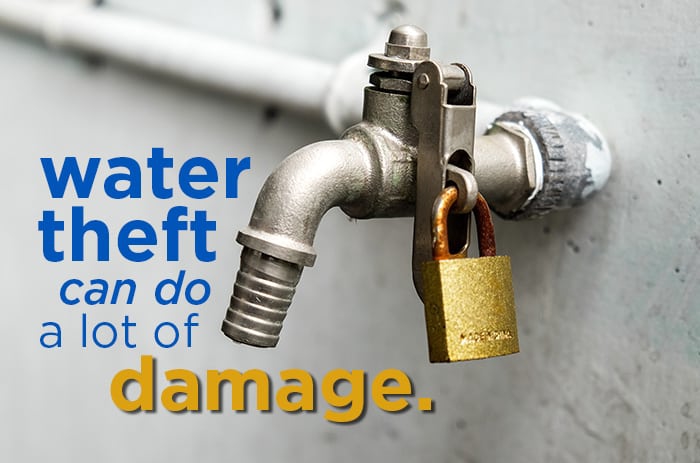
In the heart of East Africa, Kampala stands as a vibrant metropolis, brimming with life and opportunities. However, beneath its bustling surface lies a pervasive issue that is silently draining the lifeblood of the city, water theft. As National Water and Sewerage Corporation (NWSC) struggles to provide consistent water supply, the clandestine act of siphoning water for personal gain is threatening the utility’s performance and exacerbating the challenge of non-revenue water.
Water theft has emerged as a clandestine epidemic, with Kampala serving as a hotbed for this illicit activity. From makeshift connections to tampered meters, the methods employed by water thieves are as diverse as they are ingenious. The pilfered water not only undermines the financial stability of NWSC but also jeopardizes its ability to meet the increasing water demands of a rapidly growing population.
Non-revenue water (NRW) – water that is lost before reaching paying customers, is a critical metric for any water utility. In the case of NWSC, the high incidence of water theft significantly contributes to the soaring NRW levels, leaving the corporation grappling with a financial conundrum. The stolen water, which should rightfully contribute to the revenue stream, instead evaporates into the black market, leaving the utility high and dry.
The 40% non-revenue water (NRW) in Kampala isn’t merely a statistic; it profoundly impacts NWSC’s performance and obstructs its mission to provide dependable water services. This substantial loss of revenue not only hampers the utility’s ability to maintain infrastructure, invest in upgrades, and cater to the needs of a rapidly expanding city but also jeopardizes the very essence of NWSC’s existence, necessitating a decisive halt to this silent saboteur.
Kampala’s residents are caught in the crossfire of this silent war over water. With the stolen water diverted for personal use or even sold on the black market, legitimate consumers are left to contend with water shortages, unreliable supply, and in some cases, water-borne diseases. The social fabric of the city is fraying as communities grapple with the consequences of this covert crime.
Addressing water theft requires a multifaceted approach. NWSC has invested in advanced metering technology, conducted regular audits, and strengthened collaborations with law enforcement agencies like the Uganda Police and UPDF to identify and prosecute water thieves. Additionally, community engagement and awareness campaigns can help foster a sense of shared responsibility, making it more challenging for thieves to operate with impunity.
In a nutshell, as Kampala continues to grow, the battle against water theft becomes increasingly urgent. NWSC’s performance is at stake, with non-revenue water levels soaring and legitimate consumers left in the lurch. It is crucial for stakeholders, from utility management to law enforcement and the community at large, to unite in their efforts to plug the leaks, ensuring that the lifeblood of Kampala continues to flow freely and sustainably for generations to come.


